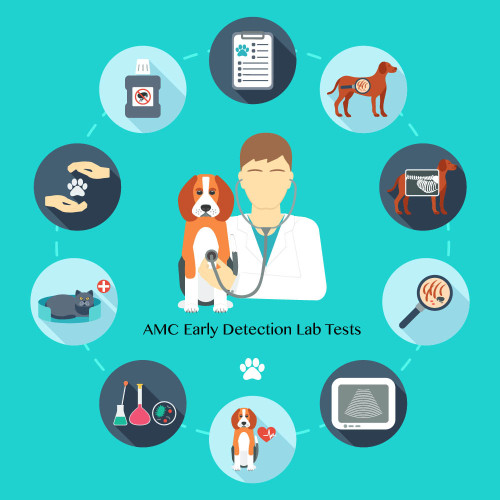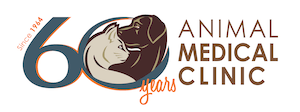Preventive care is one of the most important aspects of pet care. It helps to ensure that your pet’s health and well-being are maintained by providing regular checkups and vaccinations. Regular visits to the vet can help identify any illnesses or conditions early on, allowing for more effective treatment options. Vaccines can also reduce your pet’s chance of contracting certain diseases, such as rabies or distemper. Preventive care is also important for preventing parasites like fleas and ticks from infesting your pet’s fur or skin. Regular visits to the vet allow your pet’s healthcare provider to keep track of any changes in weight, general health, behavior, diet, and more. By taking preventive measures, you can help ensure your pet remains healthy and happy for many years to come. So make sure to take the time to schedule regular visits with your vet in order to protect the well-being of your pet.
We Provide Care For:
Animal Medical Clinic is dedicated to improving and maintaining the health of dogs, cats, ferrets, rabbits, rodents, birds and reptiles. Our practice's offers a calm, quiet approach to care for cats and dogs and other family pets.
Why is preventive care so important?
Pre•ven•tive
- Designed to keep something undesirable such as illness, harm, or accidents from occurring.
- A medicine or other treatment designed to stop disease or ill health from occurring.
Take a look at this ADORABLE video to understand why preventative care is so important
Yearly Check-Ups
Include a comprehensive medical history and physical examination, appropriate vaccinations and laboratory testing.
Why A Checkup?
A yearly veterinary check up is the best way to keep your pet as healthy as possible – because it’s much easier to prevent disease than to treat it.
So, whether your dog frolics at the park with all the neighborhood pups, or the closest your cat gets to the great outdoors is a sunny windowsill, every pet needs to see their veterinarian – at least once a year!
Remember: Pets age faster than we do, so missing even one yearly checkup can be like us not visiting a doctor for over five years!
The Importance of an Annual Physical Exam…
The importance of an annual physical examination is the same for your pet as it is for you — Dog’s and Cat’s age 4 to 7 times faster than human beings, so for a cat or dog to have an annual physical exam is like us going to see the doctor once every 4 to 7 years. A lot can happen in that period of time.
During each wellness exam we evaluate 16 body systems, looking for changes that would be difficult for most pet owners to detect, such as heart murmurs, abdominal masses and dental problems. The evaluation of the different body systems may include laboratory testing and other diagnostic workups. Some of the most common tests that may be performed are checking a stool sample for parasites, examining the urine, drawing the blood for chemistry evaluation, and cell counts.
Early Diagnosis
 Early diagnosis of disease will help your pet remain healthy — You notice every little thing your pet does – but did you know that dogs and cats have evolved to hide illness? Showing weakness makes an animal – and their pack – vulnerable, so our best friends do everything they can to keep a stiff upper lip. Your veterinarian can find problems your pet hides – another reason why annual checkups are so important!
Early diagnosis of disease will help your pet remain healthy — You notice every little thing your pet does – but did you know that dogs and cats have evolved to hide illness? Showing weakness makes an animal – and their pack – vulnerable, so our best friends do everything they can to keep a stiff upper lip. Your veterinarian can find problems your pet hides – another reason why annual checkups are so important!
If you notice any of the following in your pet, please ask your veterinarian for advice:
- Abnormal behavior, sudden viciousness or lethargy
- Change in appetite that lasts a few days (this can include an increase or decrease in appetite)
- Abnormal discharge from nose, eyes, or other body openings
- Excessive head shaking, scratching or licking
- Foul breath or excessive tartar and deposits on teeth
- Abnormal lumps, limping, or difficulty in getting up or laying down
Preventative Lab Care Testing
The history and physical exam are the most important aspects of patient monitoring and diagnosis, but lab work gives us information that we cannot otherwise detect. Even in the apparently healthy pet, diseases may be in the early stages and they cannot be recognized without appropriate lab tests. There are 5 main types of early detection lab tests:
 Intestinal Parasite Exam – a fecal floatation is recommended annually on every adult pet to screen for intestinal parasites such as hookworm, roundworm, whipworm and tapeworm. These parasites are common in our subtropical environment. A separate test should be run on each individual pet. Random samples from the yard or a litter box are not optimal.
Intestinal Parasite Exam – a fecal floatation is recommended annually on every adult pet to screen for intestinal parasites such as hookworm, roundworm, whipworm and tapeworm. These parasites are common in our subtropical environment. A separate test should be run on each individual pet. Random samples from the yard or a litter box are not optimal.- Heartworm exam – for dogs, an annual heartworm blood test is required to monitor for the presence of heartworms. Even dogs on heartworm prevention need to be monitored as heartworm prevention is not 100% effective.
- Early Detection Profiles – these are more extensive series of tests that are always recommended for senior pets, but can be done on younger adults as well if circumstances warrant.
- Chronic medication monitoring– this includes annual blood level testing for drugs such as Thyroid tabs, Phenobarbital and Potassium Bromide, and chemistry profiles for drugs like NSAIDs.
- Pre-op Chemistries – indicated for patients who need anesthetic procedures done within the next month.
How much does a Preventative Care Exam cost?
Fees as of 10/26/2024
- Preventive Care Exam: $81.80
- Rabies vaccine, Canine: $26.80
- Purevax Feline Rabies vaccine: $31.75
- DAPP vaccine: $29.45
- RCP vaccine: $29.45
- Bordetella vaccine: $31.50
- Influenza vaccine: $44.05
- Lyme vaccine: $48.75
- Leptospirosis vaccine: $24.90
- Comprehensive Lab Profile: $243.85
- Early Detection Profile: $161.05
- Intestinal Parasite Exam: $39.60
- Heartworm exam, canine: $50.75
- Parasite prevention: varies
Additional Care
Ophthalmology
We can diagnose and treat the common diseases of the eye.
Nutritional Counseling
We believe in the importance of good nutrition, and can make recommendations for your pet based upon its medical condition.
Drop Off Service
We realize that many people have hectic schedules and can’t always make it in during appointment hours, especially with a sick pet. To help with this, we offer a drop off service, where we will admit your pet to the clinic, have you fill out a short questionnaire, and when the doctor has time they will examine your pet and call you with their findings. You don’t need an appointment for this service, just come on in!
A Note About Brevard County Licenses. Brevard County residents are required to purchase a License for every dog, cat and ferret they own. Failure to comply could result in a fine of up to $120.00.



